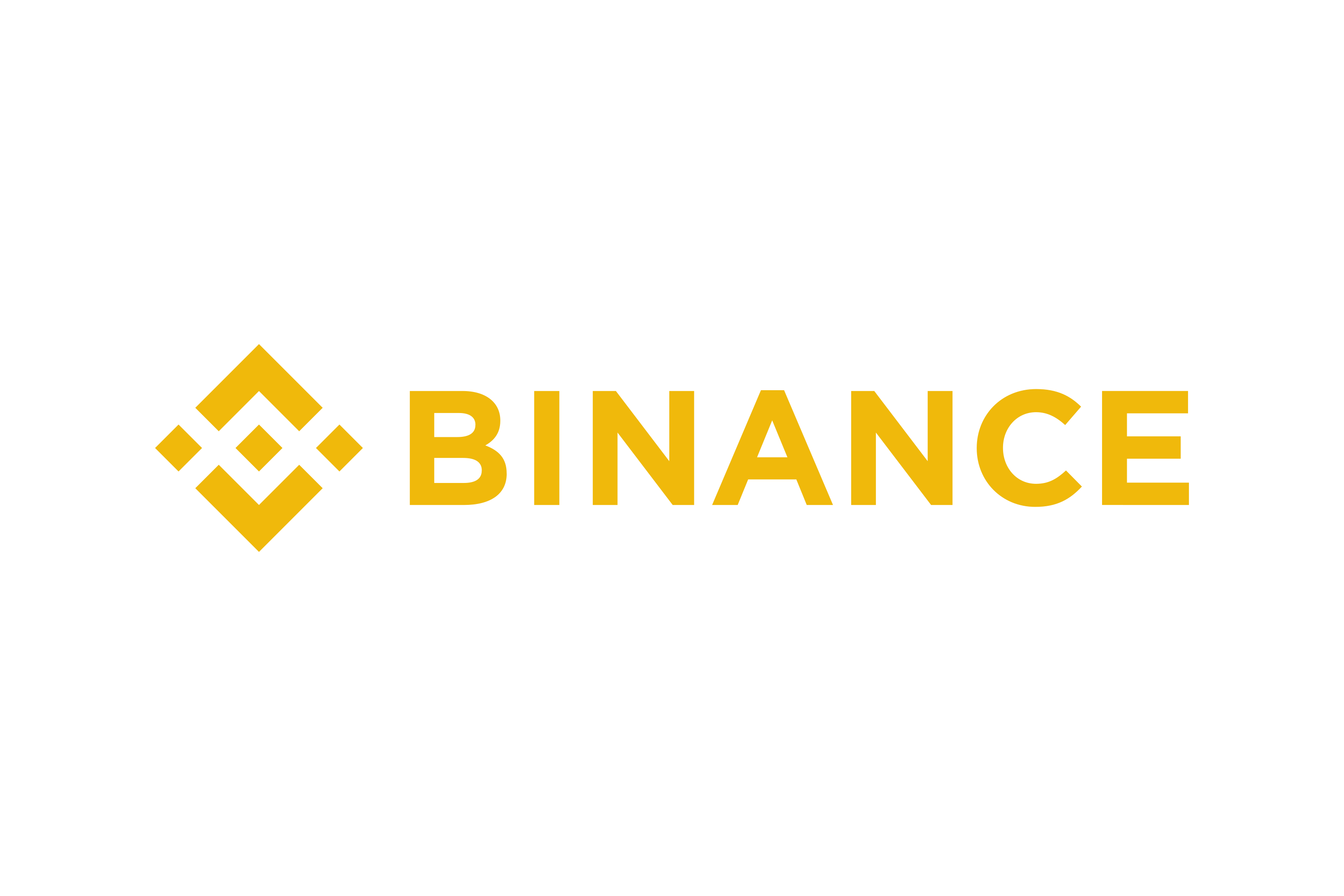Gemini and Binance are two of the most popular crypto exchanges out there. They both list a decent number of cryptocurrencies and have plenty of resources for new investors. However, the SEC filed 13 charges against Binance and its CEO Changpeng Zhao for securities violations in June 2023. We recommend staying away from Binance while this all shakes out.
Read our full Gemini vs. Binance comparison to find out how these well-known platforms stack up.
Gemini vs. Binance: At a glance
Gemini vs. Binance: Fees
Binance markets itself as a low-fee exchange and its prices back that up. It's far ahead of Gemini in terms of trading fees, particularly for smaller purchases. Here's a summary of the trading fees you'll pay on each platform:
- Binance: Binance uses a maker/taker fee structure and reduces rates for customers who pay using its native token, Binance Coin (BNB). High-volume traders can also qualify for lower fees. Plus, there are zero fees on certain BUSD and BTC pairs. The highest fee you'll pay on Binance is 0.1% for spot trading.
- Binance.US: There is a separate company for U.S. customers with a similar fee structure to the international exchange. The highest fee you'll pay on Binance.US is 0.6% for spot trading and a variable fee to use its "Buy Now" feature.
- Gemini: Fees on the normal Gemini web and mobile app depend on how much you're spending and what currency you use. For transactions under $200, you could pay between $0.99 and $2.99, plus a convenience fee of 0.5%. Transactions over $200 cost 1.49%, plus the 0.5% convenience fee.
- Gemini ActiveTrader: Gemini is similar to other major crypto exchanges that charge lower fees on their more advanced trading options. Not only does its Gemini ActiveTrader platform boast more competitive fees, but investors can also access additional features such as charting tools. The highest fee you'll pay with ActiveTrader is 0.40%.
So, what does that mean in real money? Let's say you want to buy Bitcoin (BTC). Here's how the maximum trading fees work out for various transaction amounts:
| Amount | Max fee on Binance (spot trading) | Max fee on Binance.US (spot trading) | Max fee on Gemini (fee + convenience fee) | Max fee on Gemini ActiveTrader |
|---|---|---|---|---|
| $40 | $0.04 | $0.24 | $1.99 + 0.5%* | $0.16 |
| $100 | $0.10 | $0.6 | $2.99 + 0.5%* | $0.40 |
| $250 | $0.25 | $1.5 | $1.49 + 0.5%* | $1.00 |
*Convenience fee depends on price of BTC at time of purchase.
Other fees
When you invest in cryptocurrency, trading fees aren't the only costs you'll pay. Some platforms charge as much as 5% to deposit money -- and others have hefty withdrawal fees as well. Both Gemini and Binance allow customers to deposit fiat currency (traditional money) for free via bank transfer. Gemini charges 3.49% for debit card deposits and Binance typically charges 1.8%, depending on the currency. USD deposits on Binance.US are currently paused.
READ MORE: Full Gemini review
Gemini used to allow a limited number of free crypto withdrawals each month. However, it has now withdrawn this perk and users pay a variable blockchain fee for crypto withdrawals. Binance users also pay a variable crypto withdrawal fee, depending on which blockchain they are using.
Gemini vs. Binance: Cryptos available
Gemini and Binance both have solid lists of available cryptocurrencies. You can buy top cryptos like Bitcoin, Ethereum (ETH), and Solana (SOL) from all three exchanges. They all have a good mix of stablecoins, smart contract cryptos, and metaverse and gaming cryptos, meaning investors can branch out into different types of cryptocurrency.
READ MORE: Full Binance review
Gemini does not list all the top 20 cryptos by market cap -- notable exceptions include Cardano (ADA), Binance Coin, and XRP (XRP). Binance.US and Binance both list most of the top 20, though XRP is also unavailable from Binance.US. XRP is hard to buy in the U.S. because of its legal battle with the SEC.
| Crypto exchange | Number of cryptos |
|---|---|
| Gemini | Over 100 |
| Binance | Over 350 |
| Binance.US | Over 150 |
It's worth noting that Gemini is available in every U.S. state, while residents of Hawaii, New York, Texas, and Vermont cannot use Binance.US. Some cryptocurrencies are restricted in certain states, however -- for example, New York residents can't access all Gemini cryptos.
READ MORE: Full Binance.US review
Gemini vs. Binance: Wallets
If you own cryptocurrency, it's important to think about how you want to store your crypto. This is where crypto wallets come in. Gemini and Binance customers have a couple of options in this regard:
- Custodial wallet: If you opt to leave your assets on the platform where you bought them, you're using a custodial wallet. This is more convenient, but it can bring additional risks if the platform is hacked or goes bankrupt.
- Exchange-specific crypto wallet: Gemini and Binance have their own non-custodial wallet options, which we'll explore in more detail below.
- Third-party crypto wallet: These include big brand wallets like MetaMask and Ledger. You can use a hot wallet that's connected to the internet or a cold wallet that's kept offline. It's easy to move assets from Gemini and Binance to most third-party wallets.
Gemini's crypto wallet is unusual in crypto circles. The Gemini Wallet is an insured hot wallet, meaning you're covered even if your crypto wallet is hacked. The wallet supports all Gemini assets, and it's easy to move funds to your wallet. It's especially well-suited to newer investors who aren't confident setting up and using big brand wallets like MetaMask or Ledger.
Binance acquired a third-party wallet called Trust Wallet in 2018, and it's now the company's official mobile wallet. Trust Wallet integrates with many Binance products but is open to non-Binance customers as well. It supports many more cryptocurrencies than the Gemini Wallet, but it does not carry insurance against hacking or theft.
Gemini vs. Binance: Security
Where Binance heavily markets its low fees, Gemini advertises its commitment to security with the slogan, "Trust is our product." Gemini and Binance both take security seriously and check a lot of the boxes we look for in terms of how they protect your funds. These include:
- User-level security: Both Gemini and Binance have two-factor authentication and other protections such as withdrawal whitelisting. Whitelisting means you can restrict withdrawals to certain addresses.
- Insurance: Gemini has third-party insurance against security breaches or hacks, in addition to the crypto wallet insurance we touched on above. Binance has been putting a percentage of trading fees into its own fund designed to protect user funds for several years. However, it isn't transparent about what circumstances would trigger a payout.
- Cold storage: Cold storage means funds are kept offline, making them more difficult to hack. Both platforms store the majority of funds in cold storage and use multisignature digital signature schemes to protect assets.
All in all, Gemini comes out ahead of Binance in terms of security. That isn't to say assets on Binance are not secure; it's just that Gemini really does go the extra mile to protect customer funds. Plus, platform security is one thing -- regulatory compliance is another. This is another area where Gemini shines.
Regulatory compliance
Gemini and Binance are on different ends of the spectrum when it comes to regulatory compliance. Gemini prides itself on its compliance-first approach, and it was one of the first platforms to get New York's BitLicense.
In contrast, Binance has had trouble with regulatory bodies in various countries, including the U.S., U.K., Japan, Germany, Thailand. In June 2023, the SEC brought 13 charges against Binance entities and its founder Changpeng Zhao. The accusations go beyond the sale of unregistered securities, a charge it's also brought against Gemini and other crypto platforms. The SEC says Binance has deliberately misled investors and actively evaded rules. According to SEC Chair Gary Gensler, "We allege that Zhao and Binance entities engaged in an extensive web of deception, conflicts of interest, lack of disclosure, and calculated evasion of the law." Binance denies the allegations.
Final take
Gemini and Binance are both popular cryptocurrency exchanges, and they will likely appeal to different types of investors. Both have excellent educational resources, plenty of trading tools, and a good mix of cryptocurrencies.
In summary:
- Binance stands out for its super low fees and broad range of cryptos. It also has more ways to earn interest on a wider range of assets. However, the regulatory issues it faces are concerning and it isn't clear how the SEC case will play out.
- Gemini has a lot more information about its security measures, and some may feel it's a safer pair of hands. Its insured non-custodial wallet and compliance-first approach offer a degree of reassurance in what is a relatively unregulated form of investing.
With so many platforms to choose from, you may feel that neither Gemini nor Binance is the right fit for you. If this is the case, check out our list of top cryptocurrency apps and exchanges to find one that is.
We're firm believers in the Golden Rule, which is why editorial opinions are ours alone and have not been previously reviewed, approved, or endorsed by included advertisers. Motley Fool Money does not cover all offers on the market. Motley Fool Money is 100% owned and operated by The Motley Fool. Our knowledgeable team of personal finance editors and analysts are employed by The Motley Fool and held to the same set of publishing standards and editorial integrity while maintaining professional separation from the analysts and editors on other Motley Fool brands.


